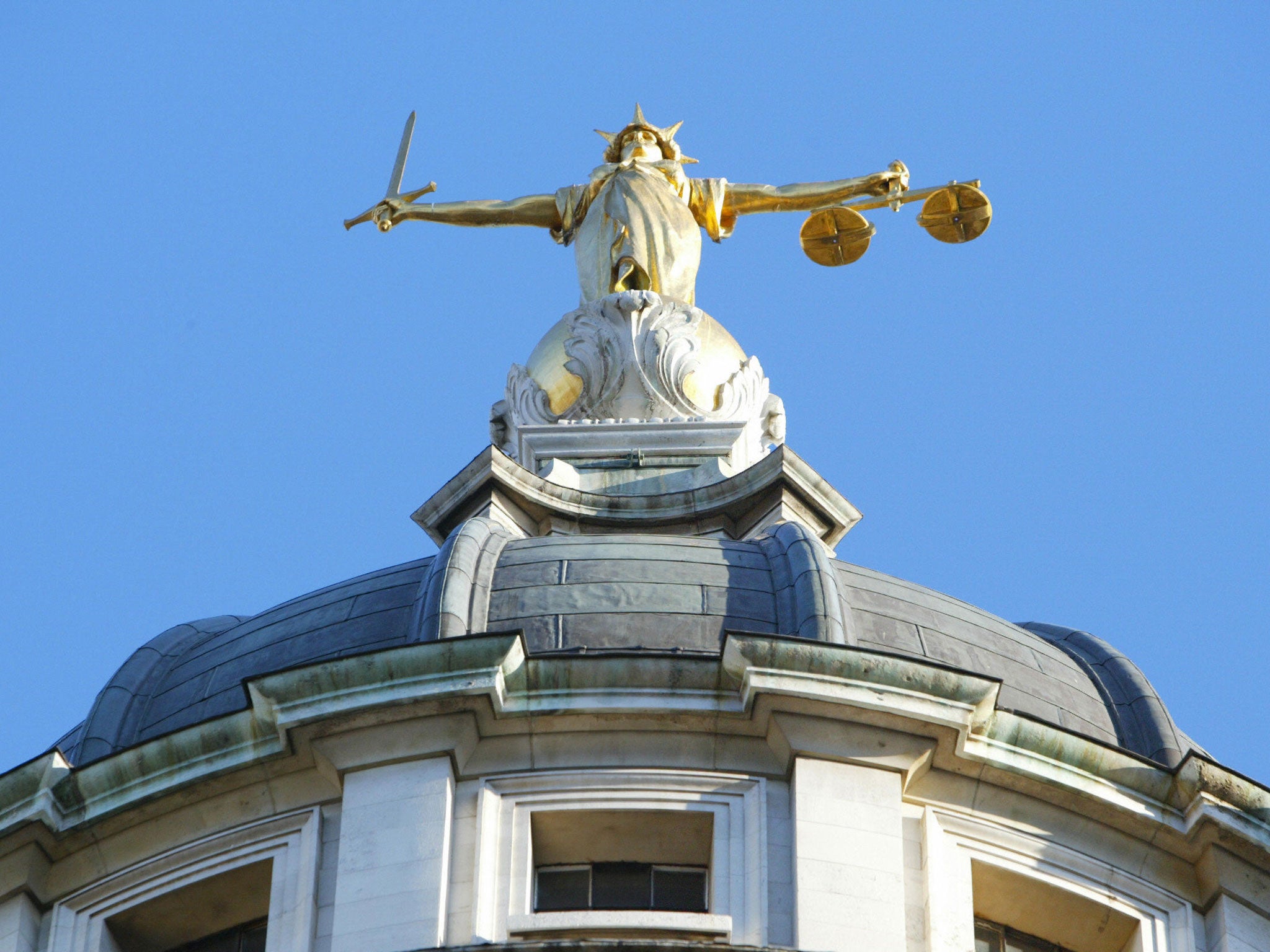Secret terror trial: Judges block Government-backed bid to hold UK's first criminal trial completely behind closed doors
‘Dangerous’ threat to open justice rejected by Court of Appeal

An attempt backed by the Government to hold Britain’s first completely secret terror trial has been blocked by the Court of Appeal, in what has been hailed as a “victory for open justice”.
Judges heard that the Crown Prosecution Service (CPS) wanted to bring a criminal case against two unnamed suspects entirely behind closed doors, in an application that is unprecedented in recent British history.
The move was signed off by the Home Secretary, Theresa May, and the Foreign Secretary, William Hague – but opposed by lawyers representing members of the media.
Finding in favour of the latter, Lord Justice Gross said judges expressed “grave concern as to the effects of holding a criminal trial in camera [secret] and anonymising the defendants… suffice it to say we are not persuaded of any justification [for this] in this case”.
It means that the two defendants can now be named as Erol Incedal and Mounir Rarmoul-Bouhadjar, who are to face charges at the Old Bailey on 16 June.
Today’s decision also means the media will be able to report the charges and swearing in of the jury, part of the various opening speeches, the verdicts and – if there are convictions – the sentences.
Yet it means that the “core” of the trial will still be held in secret. The CPS had previously said concerns for national security meant that if the trial were to be made open, there would be “a serious possibility” it would have to drop the case.
Mr Incedal and Mr Rarmoul-Bouhadjar were arrested in October 2013 under circumstances that were widely reported at the time. Mr Incedal faces charges of preparation for terrorist acts and collecting information useful for terrorism.
Mr Rarmoul-Bouhadjar is also charged with collecting information useful for terrorism, as well as the possession of false identity documents with improper intention.
Speaking after Lord Justice Gross revealed the court’s decision, a spokesman for the Attorney General said: “The measures applied for by the CPS in this case were, they believed, justified in order for the trial to proceed and for the defendants to hear the evidence against them while protecting national security.
“We are pleased that the court recognised the strength of some of these arguments, and that the case can go ahead. The CPS has indicated it accepts the judgment of the court, and will tailor its approach to the prosecution accordingly.
Sadiq Khan MP, Labour's shadow justice secretary, said: “I welcome the Court of Appeal judgment which has confirmed that the cloak of secrecy of the scale proposed is not acceptable. There may be exceptional circumstances that warrant parts of cases being held in secret, but to do so for an entire case would have been unprecedented.
“This judgment is a victory for the precious open and transparent nature of our justice system and public confidence will be enhanced as a result.”
Isabella Sankey, director of policy for Liberty, said that while she was pleased with the decision it still betrayed an overly trusting outlook from the courts in relation to Government claims of “national security”.
She said: “The judges are clear that open justice is a priceless foundation of our system and faced with a blacked-out trial we now have a few vital chinks of light.
“But their wholesale deference to vague and secret ministerial 'national security' claims is worrying. Shutting the door on the core of a criminal trial is a dangerous departure from our democratic tradition.”
